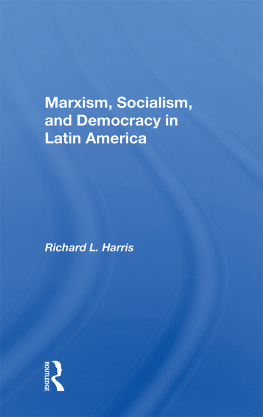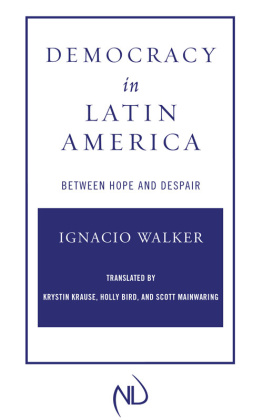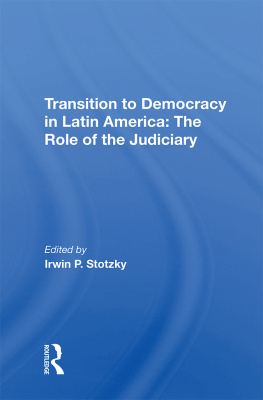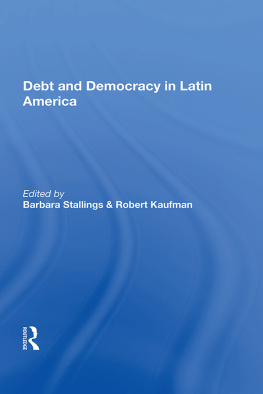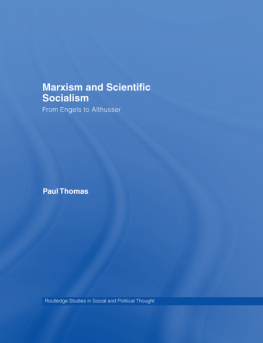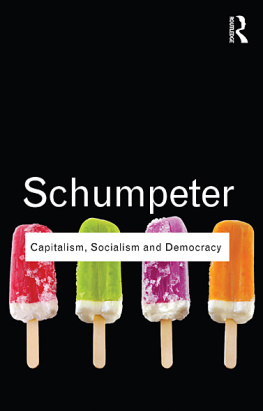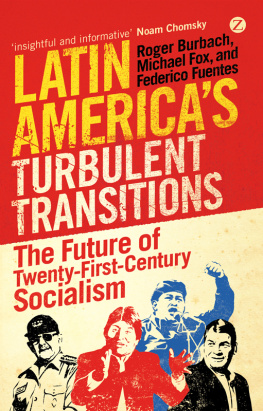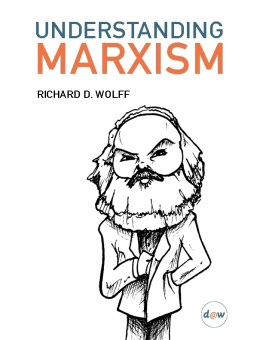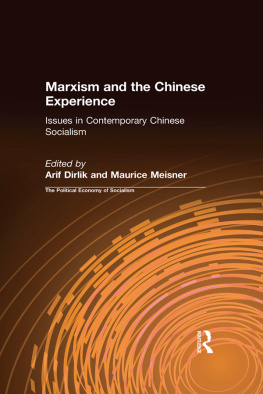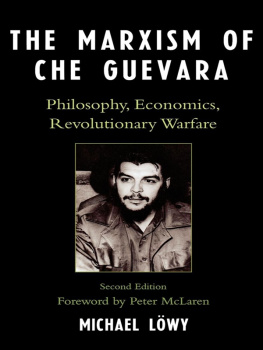Richard L. Harris - Marxism, Socialism, and Democracy in Latin America
Here you can read online Richard L. Harris - Marxism, Socialism, and Democracy in Latin America full text of the book (entire story) in english for free. Download pdf and epub, get meaning, cover and reviews about this ebook. year: 1992, publisher: Westview Press, genre: Politics. Description of the work, (preface) as well as reviews are available. Best literature library LitArk.com created for fans of good reading and offers a wide selection of genres:
Romance novel
Science fiction
Adventure
Detective
Science
History
Home and family
Prose
Art
Politics
Computer
Non-fiction
Religion
Business
Children
Humor
Choose a favorite category and find really read worthwhile books. Enjoy immersion in the world of imagination, feel the emotions of the characters or learn something new for yourself, make an fascinating discovery.
- Book:Marxism, Socialism, and Democracy in Latin America
- Author:
- Publisher:Westview Press
- Genre:
- Year:1992
- Rating:3 / 5
- Favourites:Add to favourites
- Your mark:
- 60
- 1
- 2
- 3
- 4
- 5
Marxism, Socialism, and Democracy in Latin America: summary, description and annotation
We offer to read an annotation, description, summary or preface (depends on what the author of the book "Marxism, Socialism, and Democracy in Latin America" wrote himself). If you haven't found the necessary information about the book — write in the comments, we will try to find it.
Marxism, Socialism, and Democracy in Latin America — read online for free the complete book (whole text) full work
Below is the text of the book, divided by pages. System saving the place of the last page read, allows you to conveniently read the book "Marxism, Socialism, and Democracy in Latin America" online for free, without having to search again every time where you left off. Put a bookmark, and you can go to the page where you finished reading at any time.
Font size:
Interval:
Bookmark:

52 Vanderbilt Avenue, New York, NY 10017
2 Park Square, Milton Park, Abingdon, Oxon OX14 4RN
Product or corporate names may be trademarks or registered trademarks, and are used only for identification and explanation without intent to infringe.
Harris, Richard (Richard Lege), 1939
Marxism, socialism, and democracy in Latin America / Richard L.
Harris.
p. cm. (Latin American perspectives series; no. 8)
Includes bibliographical references (p. ) and index.
ISBN 0-8133-1322-8. ISBN 0-8133-1321-X (pbk.)
1. CommunismLatin America. 2. SocialismLatin America.
I. Title. II. Series.
HX110.5.A6H37 1992
335.4'098dc20 91-41765
CIP
- AMNLAE Nicaraguan Women's Association
- ANAP National Association of Small Farmers (Cuba)
- APP Area of People's Property (Nicaragua)
- ARENA National Republican Alliance (El Salvador)
- ASI Socialist Accord (Peru)
- CDR Committees for the Defense of the Revolution (Cuba)
- CLS Committee for Labor Solidarity (Trinidad)
- CPSU Communist Party of the Soviet Union
- CTC Confederation of Cuban Workers
- FDR Democratic Revolutionary Front (El Salvador)
- FMC Federation of Cuban Women
- FMLN Farabundo Mart Front for National Liberation (El Salvador)
- FOCEP Worker Peasant Student Popular Front (Peru)
- FSLN Sandinista Front for National Liberation (Nicaragua)
- GDP gross domestic product
- GNP gross national product
- IU United Left (Peru)
- MAPU Movement for Unified Popular Action (Chile)
- MAS Movement Toward Socialism (Venezuela)
- MRTA Revolutionary Movement Tpac Amaru (Peru)
- NEP New Economic Policy (USSR)
- NJM New Jewel Movement (Grenada)
- PCP Peruvian Communist Party
- PRG People's Revolutionary Government (Grenada)
- PUM Unified Mariateguist Party (Peru)
- SDPE System for Direction and Planning of the Economy (Cuba)
- TVP total value of production
- UNIR Union of the Revolutionary Left (Peru)
- UP Popular Unity (Chile)
Introduction
Font size:
Interval:
Bookmark:
Similar books «Marxism, Socialism, and Democracy in Latin America»
Look at similar books to Marxism, Socialism, and Democracy in Latin America. We have selected literature similar in name and meaning in the hope of providing readers with more options to find new, interesting, not yet read works.
Discussion, reviews of the book Marxism, Socialism, and Democracy in Latin America and just readers' own opinions. Leave your comments, write what you think about the work, its meaning or the main characters. Specify what exactly you liked and what you didn't like, and why you think so.

